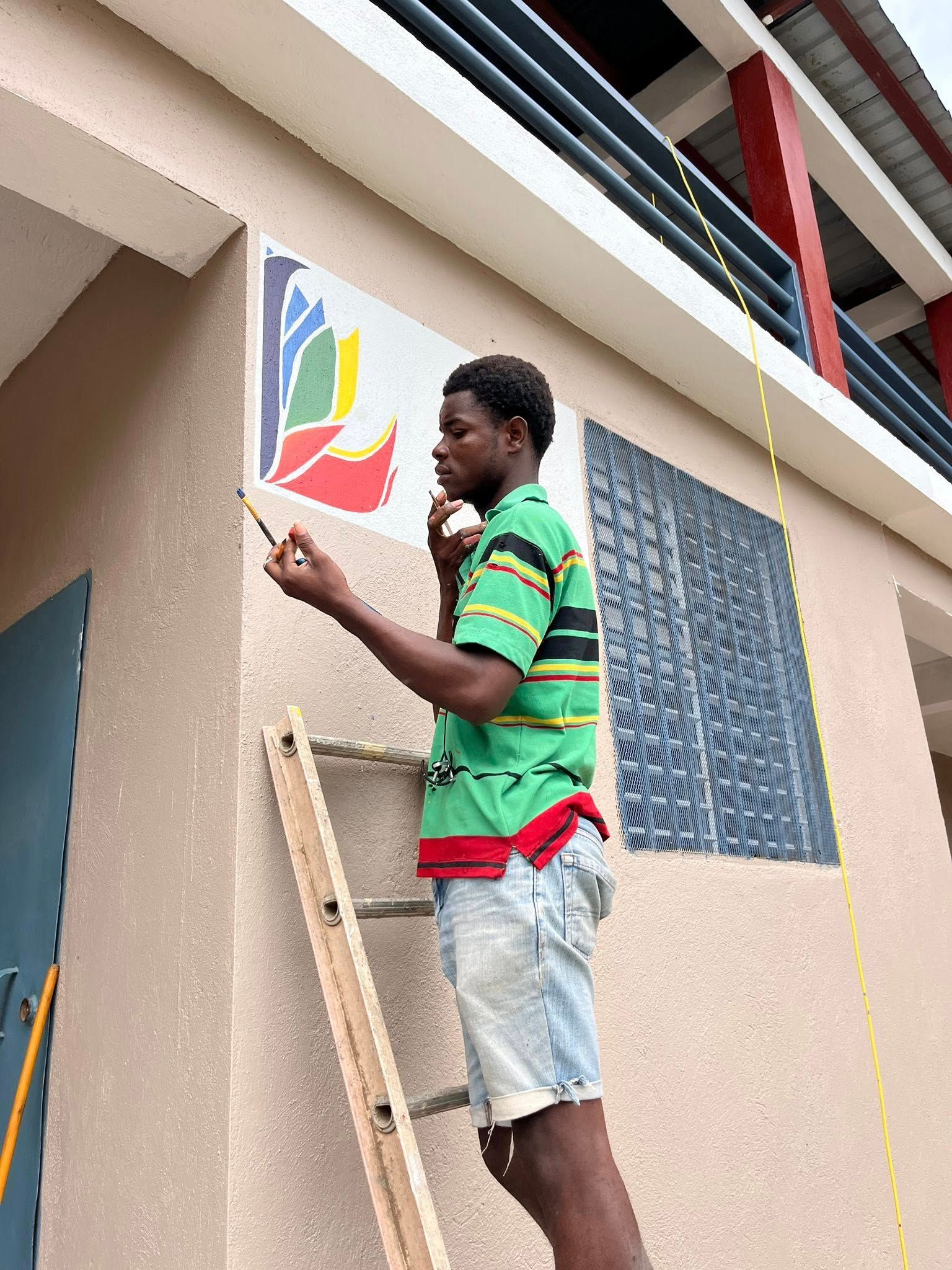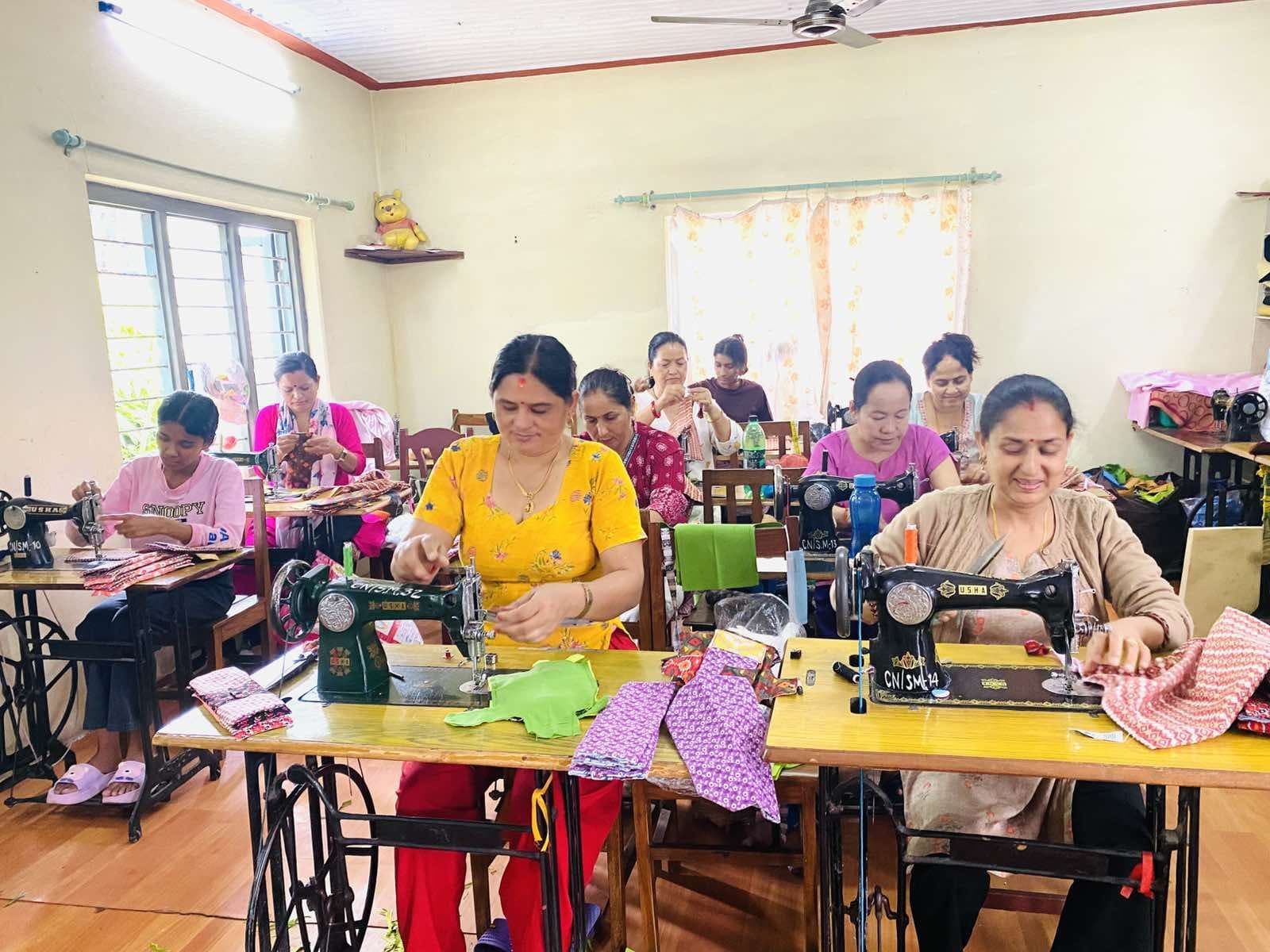By Gabrielle Aurel
•
January 26, 2026
In March 2025, The Steve Sinnott Foundation, in partnership with Sonje Ayiti Organisation and local partners, launched a month-long campaign in Haiti to raise awareness of gender-based violence and empower communities to take action. The campaign launched on International Women’s Day (8 March) at the CIMA Community School of Hope, where over 200 people gathered for a vibrant programme of cultural dances, drama, partner presentations and open discussions. Facilitators from SOSPSY, a Haitian non-governmental organisation providing psychosocial support and mental health services to communities affected by trauma, violence, and displacement, guided participants in exploring hidden forms of violence often accepted as normal. Their sessions created a powerful space for reflection and the sharing of personal testimonies. Through interactive workshops and educational games, students learned about gender equality and how to recognise and prevent gender-based violence, as well as how to support peers who may be affected. They asked thoughtful questions, engaged actively and pledged to become ambassadors for non-violence in Haiti. As part of the Positive Periods Programme, 20 girls received 100 reusable sanitary pads in recognition of their participation. Many attendees expressed gratitude and a strong commitment to take action within their communities. A national voice inspires local action On 12 March, the campaign welcomed Jean Jean Roosevelt, one of Haiti’s most celebrated singers and a champion for women’s rights through his lyrics. He engaged boys at CIMA School of Hope in a gender-based violence campaign by producing a music video about the topic, giving them a platform to speak about respect for women and their role in ending violence. Their voices will now join a growing national movement for equality. Positive Periods: sustainable solutions for girls and the planet The campaign also tied into the Positive Periods Programme, now in its fourth year. Thanks to funding from The Foundation, students at CIMA’s sewing workshop are making reusable sanitary pads, uniforms and traditional clothing. In March alone, 237 reusable pads were distributed in schools and at the campaign’s closing ceremony, helping girls stay in class and reducing waste from disposables. So far, 41 students have been trained in sewing, with 20 already earning income from their skills. This programme not only supports menstrual health but also tackles poverty and environmental challenges by promoting cost-effective, sustainable, reusable products. Reusable sanitary pads have helped reduce school absenteeism for more than 1,500 girls while also cutting waste across 19 rural schools. This year, the sewing workshops at CIMA Community School of Hope expanded the Positive Periods Programme, training 41 students, both girls and boys, in pad-making and other skills. Twenty of these students are now earning an income of 1,000 Gourdes (around $8 USD) per uniform, while also producing reusable pads for women and girls who cannot make their own. Through The Foundation, the Learning Resource Centre provides a Sewing Workshop that is equipped with machines and supplies, enabling students, not only to produce pads but also to develop valuable skills. Designed for durability, these pads can be reused for years, reducing costs, limiting import, and providing income-generating opportunities for students. Monitoring and evaluation The project evaluated both implementation and methodology before, during, and after each intervention. Pre-assessments measured participants’ knowledge of gender-based violence, while sessions ensured understanding and post-assessments allowed questions and discussion. Initially, most participants were unfamiliar with gender-based violence, but by the end, they actively engaged in discussions on issues like men’s authority over women and corporal punishment, showing increased awareness and commitment. Follow-up interviews confirmed retention of key information and a willingness to adopt behaviours that help prevent gender-based violence in their communities. In total, the campaign reached more than 500 people directly and an estimated 5,000–10,000 indirectly through community networks, posters, and social media—spreading vital messages of equality and change far beyond the classroom walls. Looking ahead Evaluations showed that most participants entered the campaign with little knowledge of gender-based violence but left with a clearer understanding and determination to act going forward. Through these initiatives, The Steve Sinnott Foundation is helping young people and communities stand together against violence, build sustainable futures ,and create a more equal, hopeful Haiti. This programme is supported by the Soroptimist International Foundation, a Charitable Trust overseen by SI (Soroptimist International) Limited. By Gabrielle Aurel Director of Sonje Ayiti




